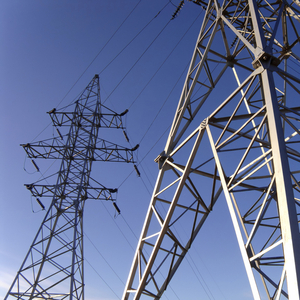Lawmakers ask EPA to delay plans for eRINs

May 1, 2023
BY Erin Krueger
House Energy and Commerce Committee Republications on April 25 sent a letter to U.S. EPA Administrator Michael Regan urging the agency to reconsider its plan to open the Renewable Fuel Standard to certain sources of renewable electricity.
The EPA’s proposed “set” rule aims to establish RFS renewable volume obligations (RVOs) for 2022, 2023 and 2024. It also includes a long-awaited provision to allow renewable identification numbers (RINs) to be generated for certain types of biobased renewable electricity used to fuel vehicles (eRINs)
Advertisement
The letter, led by Reps. Cathy McMorris Rogers, R-Wash., and Richard Hudson, R-N.C., encourages the EPA to reconsider its proposal to allow the generation of eRINs.
“When the RFS was first created by Congress in 2005 and amended two years later in 2007, the program was designed to encourage the use of certain types of domestically produced blends of gasoline for vehicles,” they wrote. “The RFS is intended to focus on liquid transportation fuels, and not to be used as a tool to electrify transportation. However, EPA’s proposed rule significantly changes how RINs would be addressed under the RFS program to allow for blended transportation fuel produced from renewable biomass to generate eRINs for electric vehicles (EVs).”
Advertisement
The lawmakers specifically cite concerns over the EPA’s plan to allow original equipment manufacturers (OEMs) of EVs to generate RINs for light-duty vehicles. The letter acknowledges that the Energy Independence and Security Act of 2007 included a provision that required the EPA to study the feasibility of issuing credits for electric vehicles powered by electricity produced from renewable energy sources. That study was to take place within 18 months. The representatives note that the agency has already missed that deadline by nearly 14 years, but criticize the EPA for “moving forward with the rulemaking without studying the feasibility or market impacts of establishing an entirely new RIN program that would be contrary to both the RFS’ statutory language and the intent of Congress.”
A full copy of the letter is available on the Energy and Commerce Committee website.
Related Stories
CountryMark on July 22 celebrated the completion of more than $100 million in upgrades at its refinery in Indiana, including those related to soybean oil storage. The facility produces renewable diesel via coprocessing technology.
ATOBA Energy and Air Moana are partnering to implement scalable solutions for the supply of SAF. The collaboration aims to ensure long-term SAF availability while supporting local initiatives to develop sustainable fuel production in Tahiti.
While final IRS guidance is still pending, the foundation of the 45Z program is well defined. Clean fuel producers should no longer be waiting; they can now move forward with critical planning and preparation, according to EcoEngineers.
Neste Corp. on July 24 released second quarter results, reporting record quarterly renewable product sales volumes despite weaker margins. SAF sales were up nearly 80% when compared to the first quarter of 2025.
Valero Energy Corp. on July 24 released second quarter results, reporting a profitable three-month period for its ethanol segment. The renewable diesel segment posted a loss, but the company’s new sustainable aviation fuel (SAF) unit operated well.
Upcoming Events










